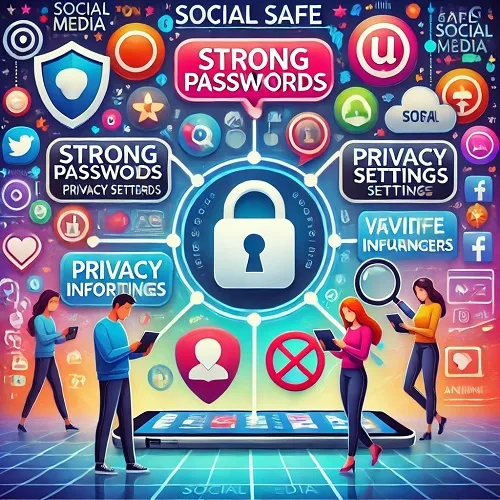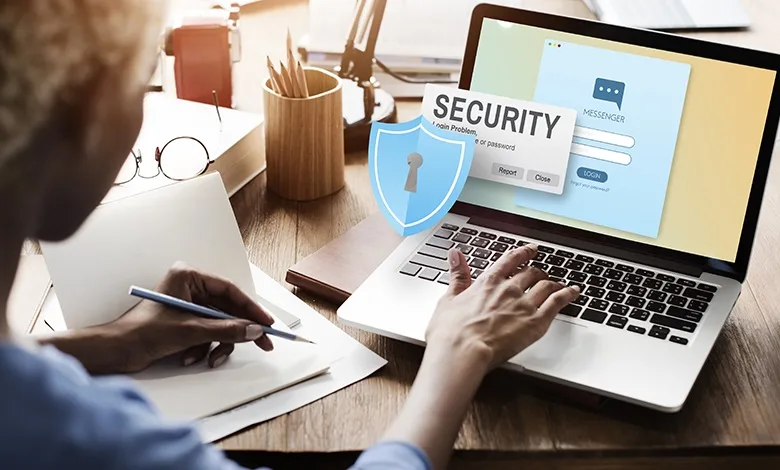
Protect Yourself on Social Media: A Comprehensive Guide
Social media platforms have become an integral part of our daily lives, allowing us to connect, share, and communicate with others globally. However, it’s crucial to ensure our safety while using these platforms. This article explores various aspects of staying safe on social media, including why people share personal information, the lack of concern for protection, potential dangers, safety measures, behavior guidelines, and the importance of anonymity.
Why People Share Personal Information on Social Networks
People often share personal information on social networks for several reasons. Firstly, social media platforms are designed to encourage sharing by offering rewards in the form of likes, comments, and shares. This positive reinforcement makes users feel valued and acknowledged, prompting them to share more.
Secondly, sharing personal information can help users stay connected with friends and family. By posting updates about their lives, people can maintain relationships and feel part of a community. Additionally, sharing achievements and experiences can enhance one’s social status and create a sense of belonging.
Why People Don’t Worry About Their Own Protection
Many users underestimate the risks associated with sharing personal information on social media. One reason is the perceived familiarity and trust in the platform. Users often believe that the platform’s security measures are sufficient to protect their data, leading to a false sense of security.
Moreover, the convenience and ease of sharing information overshadow potential risks. Users prioritize the immediate benefits of social interaction over the abstract threat of data breaches or misuse. Additionally, a lack of awareness about privacy settings and security measures contributes to their negligence.
What Dangers Inexperienced Users Can Expect
Inexperienced users on social media are vulnerable to various dangers. Cyberbullying is a significant threat, where individuals are harassed, humiliated, or intimidated online. This can have severe emotional and psychological impacts, especially on younger users.
Another danger is identity theft. When users share personal information such as birthdates, addresses, or phone numbers, malicious actors can use this data to impersonate them and commit fraud. Phishing scams are also prevalent, where users are tricked into revealing sensitive information through deceptive messages or websites.
Additionally, oversharing can lead to physical risks. For instance, posting about one’s location or daily routine can make it easier for criminals to track and target them.
What Measures Can Be Taken
To stay safe on social media, users should implement several measures. Firstly, it’s essential to adjust privacy settings to control who can see their posts and personal information. Regularly reviewing and updating these settings can prevent unauthorized access.
Secondly, users should be cautious about what they share. Avoid posting sensitive information such as home addresses, phone numbers, or financial details. It’s also wise to limit sharing real-time locations or daily routines.
Another measure is to use strong, unique passwords for each social media account. Enabling two-factor authentication adds an extra layer of security, making it harder for hackers to gain access.
Lastly, educating oneself about common online threats and how to recognize them is crucial. Staying informed about the latest security practices can help users protect their data and avoid potential scams.

How to Behave Better on Social Networks
Good behavior on social networks involves being respectful and considerate of others. Users should think before they post, ensuring their content is not harmful or offensive. Engaging positively and constructively with others fosters a safer online environment.
It’s also important to report any abusive or suspicious behavior to the platform administrators. Most social media platforms have mechanisms for reporting and addressing issues like cyberbullying, harassment, or fake accounts.
Additionally, users should be mindful of the time they spend on social media. Setting boundaries and taking regular breaks can prevent burnout and reduce the negative impact on mental health.
The Importance of Anonymity on Social Networks
Anonymity on social networks can provide a layer of protection for users. By not revealing their real identities, users can avoid potential threats such as stalking, harassment, or identity theft. It also allows individuals to express themselves freely without fear of judgment or retaliation.
However, anonymity should be used responsibly. While it offers protection, it can also be misused to engage in harmful behavior without accountability. Platforms should balance the need for user anonymity with mechanisms to prevent abuse.
Ultimately, being aware of the importance of anonymity and using it wisely can enhance one’s safety and privacy on social media platforms.
